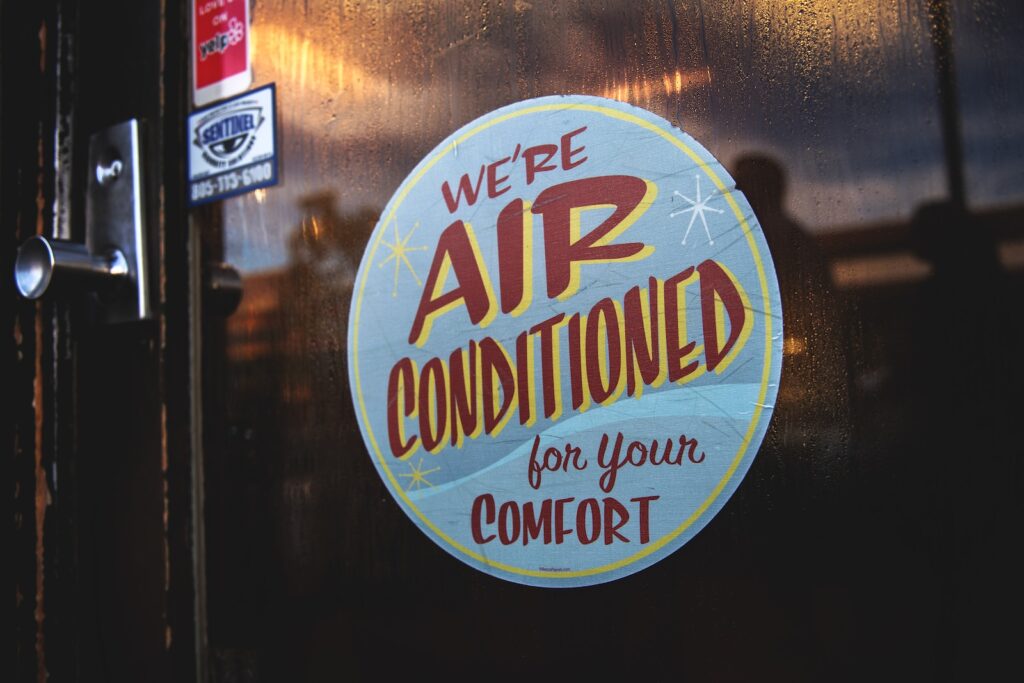Rated & Reviewed is reader-supported. When you buy through links on our site, we may earn an affiliate commission. Learn more.
In the pursuit of a healthier indoor environment, selecting the right air purifier goes beyond understanding filtration technology. There are a range of things to consider about air purifiers that can significantly impact your air purifier’s performance and its contribution to your well-being. In this article, we delve into the various aspects to consider when choosing an air purifier that aligns with your needs and preferences.
Noise Levels and Sleep Quality
The concept of cleaner air comes with an essential caveat: the noise generated by some air purifiers. While the hum of a fan may be white noise to some, it can disrupt sleep patterns for others. Many modern air purifiers address this concern by offering ultra-quiet modes designed specifically for nighttime use. These modes reduce fan speed and noise levels, ensuring that you breathe easier without sacrificing the tranquility necessary for a restful sleep. When evaluating air purifiers, pay attention to noise levels in decibels (dB) and look for models that prioritize quiet operation, especially for bedrooms and quiet spaces.

Odor Elimination and Improved Indoor Air Quality
Beyond allergens and particles, indoor air quality often involves the challenge of lingering odors. Cooking aromas, pet smells, and other unpleasant scents can diminish indoor comfort. This is where activated carbon filters come into play. These filters, commonly used in combination with HEPA filters, specialize in trapping and neutralizing odors and volatile organic compounds (VOCs). As air passes through the carbon filter, odorous molecules are adsorbed, leaving the air fresher and more pleasant. By addressing both particles and odors, air purifiers equipped with activated carbon filters contribute to a healthier and more enjoyable living environment.
Energy Consumption and Efficiency
With the increasing demand for energy-efficient appliances, evaluating the energy consumption of your air purifier is crucial. While air purifiers generally consume less energy than larger household appliances, such as refrigerators or air conditioners, they still contribute to your electricity bills. Opting for models with ENERGY STAR certification ensures that your air purifier meets stringent energy efficiency standards. Additionally, some air purifiers feature smart features that adjust fan speeds based on air quality, further optimizing energy consumption. Balancing air quality improvement with energy efficiency is a key consideration when choosing an air purifier.
Filter Replacement and Maintenance
Air purifiers’ performance hinges on the condition of their filters. Regular filter replacement is essential to maintain efficient air purification. Different types of filters require replacement at varying intervals. For instance, HEPA filters usually require replacement every 6 to 12 months, while activated carbon filters may last longer. Check the manufacturer’s recommendations for precise guidelines. It’s important to source replacement filters from reputable sources to ensure the quality and compatibility of the filters with your air purifier model. Regular maintenance, including filter replacement, is the cornerstone of effective air purification.
Air Quality Sensors and Smart Connectivity
Air purifiers equipped with air quality sensors take air purification a step further by providing real-time information about your indoor air quality. These sensors measure pollutants and display air quality levels through indicator lights or digital displays. Some models even adjust purification settings automatically based on detected pollution levels. Smart connectivity features offer remote control and monitoring through mobile apps, allowing you to adjust settings, monitor air quality, and receive filter replacement reminders from your smartphone.
Adjustable Fan Speeds and Customizable Settings
Every environment has unique air quality challenges, and the ability to tailor air purifier settings to your specific needs is valuable. Look for air purifiers with adjustable fan speeds to accommodate different pollution levels. High-speed settings are useful for rapidly improving air quality, while lower settings maintain quiet operation during daily use. Many air purifiers also feature customizable settings such as timers, sleep modes, and automatic shutoff. These settings allow you to personalize your air purification experience based on your preferences and the specific demands of your living space.
Aesthetics and Design
An air purifier is more than a functional appliance—it’s also a part of your living space. Consider the aesthetics and design of the air purifier to ensure it complements your home decor. Some manufacturers prioritize sleek and modern designs that seamlessly blend with various interior styles. Compact and unobtrusive designs make it easier to integrate the air purifier into your living space without disrupting the visual harmony.
Certifications and Standards
When choosing an air purifier, certifications and standards serve as valuable indicators of product quality and performance. Look for air purifiers with certifications from recognized organizations such as AHAM (Association of Home Appliance Manufacturers) and CARB (California Air Resources Board). These certifications verify that the purifier meets strict industry standards for efficiency and pollutant removal. Additionally, ENERGY STAR-certified air purifiers meet rigorous energy efficiency criteria, contributing to reduced energy consumption and operating costs.
Wrapping Up Other Things to Consider About Air Purifiers
Exploring the additional features and considerations of air purifiers enhances your ability to select a system that aligns with your lifestyle, preferences, and air quality needs. Whether you prioritize ultra-quiet operation, odor elimination, energy efficiency, or advanced connectivity, each feature contributes to creating a healthier indoor environment.
As you weigh your options, remember that the ideal air purifier is one that strikes a balance between its technical capabilities and your unique requirements. Noise levels, customizable settings, smart features, and design all play a role in your overall satisfaction with your chosen purifier. By investing in an air purifier that meets your specific needs, you’re taking a proactive step toward enjoying cleaner air and improved well-being.
Ultimately, the journey toward a healthier home involves more than just purifying the air; it’s about optimizing your living space to provide comfort, tranquility, and a sense of well-being. As you evaluate the multitude of air purifiers available, consider the insights shared in this article to make a confident decision that brings you one step closer to a space where clean air and holistic living harmonize.
FAQs – Things to Consider About Air Purifiers
Noise Levels and Sleep Mode FAQs
Q: Do all air purifiers have a sleep mode?
A: Not all air purifiers have a designated sleep mode. Look for models that offer this feature for quieter operation during nighttime.
Q: How can I determine if an air purifier’s noise level is suitable for my bedroom?
A: Check the decibel (dB) rating of the air purifier’s noise level. Models with lower dB ratings are quieter and more suitable for bedrooms.
Q: Can I use the sleep mode during the day for quiet operation?
A: Yes, the sleep mode can be used at any time you desire quieter operation, not just during nighttime.
Odor Elimination and Improved Indoor Air Quality FAQs
Q: Can air purifiers completely eliminate all indoor odors?
A: While air purifiers with activated carbon filters significantly reduce odors, complete elimination depends on factors like odor intensity and source.
Q: Will an air purifier remove cooking smells from the kitchen?
A: Yes, air purifiers equipped with activated carbon filters can effectively capture cooking smells and improve indoor air quality.
Q: Are there air purifiers specifically designed for pet odors?
A: Yes, some air purifiers are tailored to address pet-related odors and dander, featuring specialized filtration.
Energy Consumption and Efficiency FAQs
Q: Are ENERGY STAR-certified air purifiers more expensive?
A: While ENERGY STAR-certified models may have a slightly higher upfront cost, they often lead to long-term energy savings and lower operating costs.
Q: How can I minimize the energy consumption of my air purifier?
A: Opt for air purifiers with features like smart sensors that adjust fan speeds based on air quality, optimizing energy use.
Q: Are energy-efficient air purifiers less effective in cleaning the air?
A: No, energy-efficient models can still effectively purify the air. Look for models that balance energy efficiency with robust filtration.
Filter Replacement and Maintenance FAQs
Q: Can I wash and reuse air purifier filters?
A: Most air purifier filters are designed for single-use and cannot be washed or reused. Refer to the manufacturer’s recommendations for proper maintenance.
Q: How do I know when it’s time to replace the filters?
A: Many air purifiers have filter replacement indicators that provide visual or audible cues when it’s time for a filter change.
Q: Is it necessary to use genuine replacement filters from the manufacturer?
A: Yes, using genuine replacement filters ensures optimal performance and maintains the air purifier’s effectiveness in purifying the air.
Air Quality Sensors and Smart Connectivity FAQs
Q: Can air quality sensors accurately detect pollutants?
A: Yes, air quality sensors are calibrated to detect a range of pollutants and provide real-time readings of indoor air quality.
Q: Do all air purifiers with air quality sensors have smart connectivity?
A: While many air purifiers with sensors also feature smart connectivity, not all models offer this combination. Check the specifications of each purifier.
Q: How does smart connectivity enhance the air purification experience?
A: Smart connectivity allows you to remotely monitor and control the air purifier, receive air quality alerts, and adjust settings for optimal purification.
Amazon and the Amazon logo are trademarks of Amazon.com, Inc, or its affiliates.


